
Benedict IV (900-903) 119th Pope
He succeeded in maintain the integrity of the papacy
He constantly sought out the way of justice
Leo V (903) 120th Pope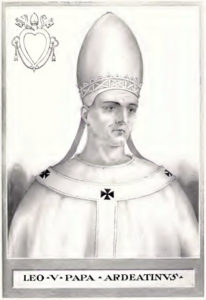
He was known for his holiness
He was elected in hopes that an outsider would be above the bitter factionalism that was destroying the Church
Sergius III (904-911) 121st Pope
He officially reinstated the posthumous trial of Formosus
He declared Formosus appointments invalid, creating sacramental confusion
He defended the rights of the Church against feudal lords
Anastasius III (911-913) 122nd Pope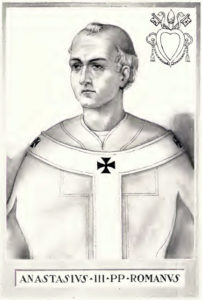
He was known for moderation
The papacy was beset with persistent internal disorders
Lando (913-914) 123rd Pope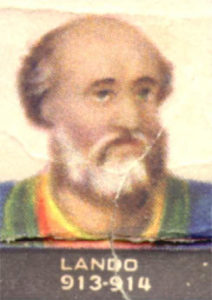
His appointment was a result of the actions of a political faction
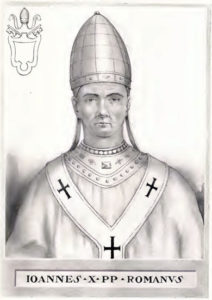
John X (914-928) 124th Pope
His efforts were in fighting the Muslims
He consented to a royal appoint in return for the release of a king
His election was due to political intrigues
Leo VI (928-929) 125th Pope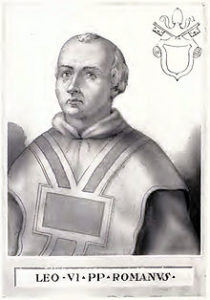
His election was due to political intrigues
He tried to restore peace among the various factions
Stephen VIII (929-931) 126th Pope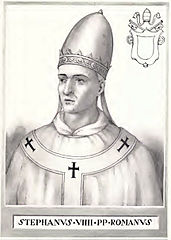
His election was due to political intrigues
John XI (931-935) 127th Pope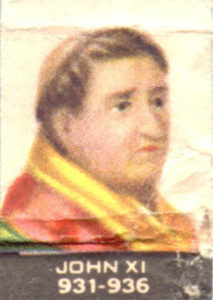
This papacy was truly one of the most depressing in history
He tried to settle the political intrigues
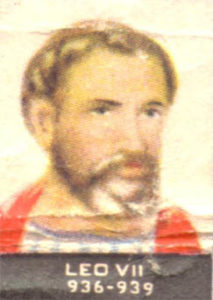
Leo VII (936-939) 128th Pope
He forbade the forcible conversion of Jews
He wrote to France and Germany condemnation of witches and fortune tellers
He reformed and reorganized monastic life
Stephen IX (939-942) 129th Pope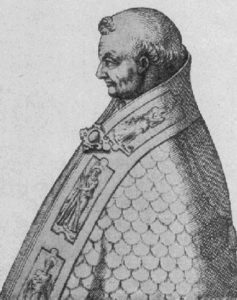
He compelled the French nobles to remain loyal to the Carolingian king
He tried to convert the lords of the east and west to the Gospel
Marinus II (942-946) 130th Pope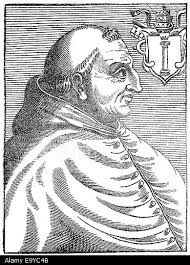
He initiated reform
He looked after both the poor and the repair of churches
He restored Rome as the moral capital of the world
He modified the rules of orders
Agapetus II (946-955) 131st Pope
He worked on the repair of churches and relief of the poor
He encouraged the growth of Catholicism among the Danes
He did his utmost to raise the moral condition of the clergy
John XII (955-964) 132nd Pope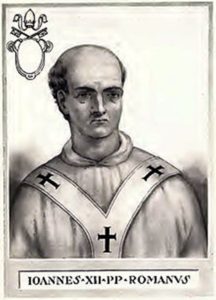
His election had been arranged in advance
The Lateran palace was called a brothel
He unwittingly set into motion the cleansing of Rome by the imperial army
The emperor rescued the papal states
From this time forward, popes were to swear allegiance to the emperors
He insisted on the temporal rights of the Church
He died in the arms of his mistress
Leo VIII (963-965) 133rd Pope
Pope John XII was deposed by the emperor.
He was elected as a lay person by the emperor. All of the holy orders were hurriedly bestows upon him
His reign dealt with issues with his predecessor and successor
Pope John XII degraded all the clerics ordained and appointed by him
Benedict V (964) 134th Pope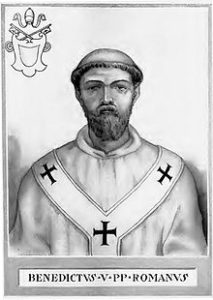
The clergy and the Roman citizens elected him.
He was exiled to Hamburg by the emperor
His investiture was recognized upon the death of his predecessor
John XIII (965-972) 135th Pope
The death of Leo VIII prompted the Romans to petition the emperor to return Benedict V. The emperor refused. John XIII was elected
The Roman nobility resented and imprisoned him. He fled Rome
The Romans asked him to return to Rome
He convened synods
He and the emperor cooperated in a worthy manner
The papal-imperial alliance was sealed
The two imperial traditions were united. The western emperor’s son was married to a Byzantine princess
Missionary work was undertaken in the now central Germany and Czech Republic
He introduced the custom of blessing and giving names to bells
Benedict VI (972-974) 136th Pope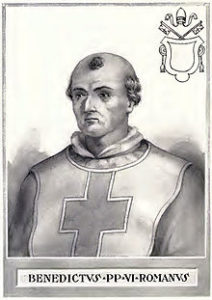
He was imprisoned and killed
He granted various privileges to churches and monasteries
He converted the Hungarian people to Christianity
He was replaced by the anti-pope by those who killed him
Benedict VII (974-983) 137th Pope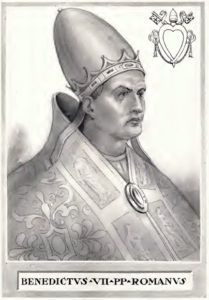
He was being menaced by that anti-pope’s advocates
He promoted the growth of monastaries
He gave aid to the persecuted Christians of North Africa who were being strangled out of existence by the Muslims
He tried to stem the debauchery and ignorance that pervaded Italy and the Christian world
He promoted the development of agriculture
John XIV (983-984) 138th Pope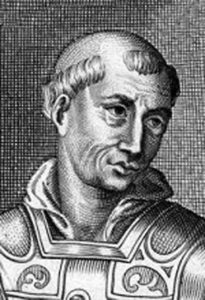
The anti-pope Boniface VII overthrew and murdered him
John XV (985-996) 139th Pope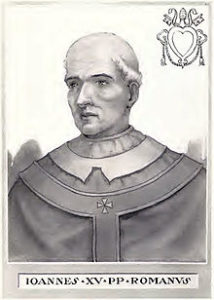
He was restricted access by a political faction.
He sought the empress help to prevent this
He was the first pope to canonize a saint, St. Ulrich, bishop of Hapsburg
The king of England and Duke of Normandy were locked in a dispute that foreshadowed the Normandy invasion of England
Gregory V (996-999) 140th Pope
He was the emperor’s cousin
He faced political forces and was forced out of Rome. An antipope was appointed
He instituted the commemoration of the dead
Sylvester II (999-1003) 141st Pope
He was the first Frenchman to become pope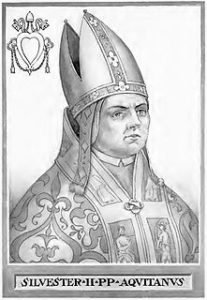
He promulgated many bulls
He was so well educated that he became one of the greatest scientists in Christendom
He strongly contributed to the adoption of the decimal system in Europe
He was a great instructor
He intervened everywhere in the West
In collaboration with the emperor, he created two new national churches in Poland and Hungary
He was a reconciler, unifier and bridge builder between the Eastern empire and Western empire
He tried to repress the debauchery
Many considered the year 1000 crucial for the Final Judgment
